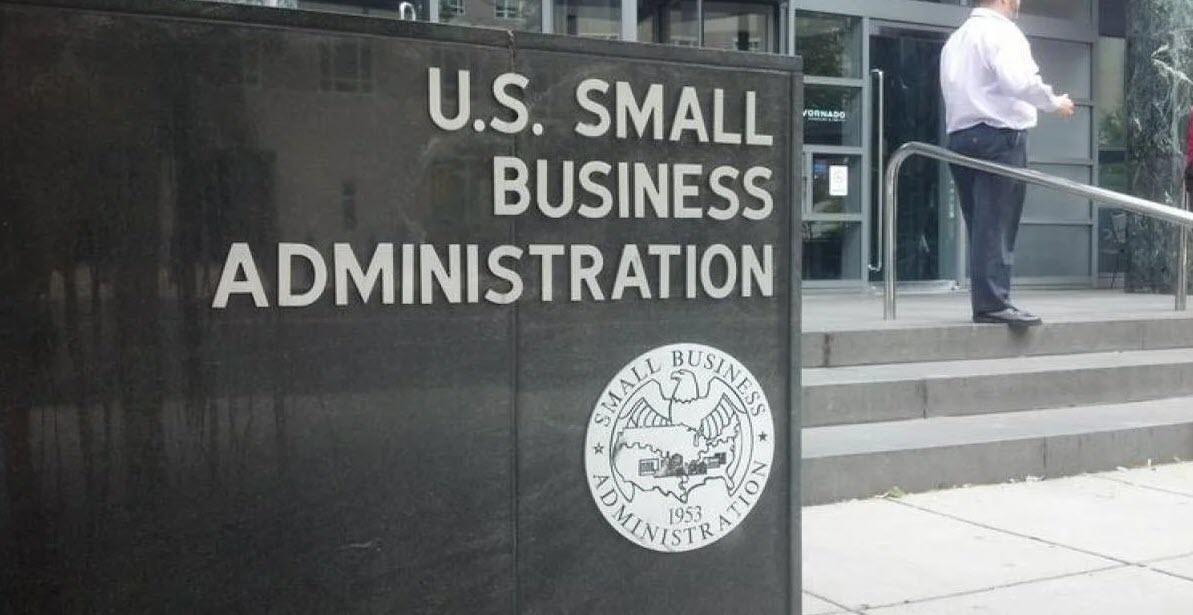The “Small” Business Administration Is Now Bigger Than Walmart
Authored by Simon Black via SovereignMan.com,
As you’ve probably already heard, the US government unleashed a giant tsunami of money on Friday, passing a $2 trillion stimulus bill to help boost the economy during the Covid pandemic.
Let’s put that number in context:
-
$2 trillion is more than it cost to wage 18+ years of war in Afghanistan and Iraq.
-
It’s nearly THREE times the size of the bailout from 2008.
-
It exceeds ALL corporate and individual income tax revenue collected by the IRS last year
We are clearly living in unprecedented times… and that this bailout is equally unprecedented.
Among the bailout’s many provisions (which go on for more than EIGHT HUNDRED pages!) is a whopping $350 billion to the Small Businesses Administration.
The Small Business Administration is ordinarily a tiny federal agency. But this funding exceeds the budgets of the Army and Navy COMBINED. It’s 8x the size of the United States Marine Corps. It’s more than the entire market capitalization of Walmart.
You get the idea.
The SBA just became one of the biggest organizations in the world.
Now, in normal times, the SBA’s mission is to help startups and small businesses obtain bank loans; it’s usually pretty difficult for a startup to borrow money from a bank loan because the business is too risky, and banks don’t want to lend.
So the SBA’s role is to provide a guarantee for the loan. They’re essentially telling the bank that if the business fails and doesn’t pay back the loan, the federal government (i.e. American taxpayers) will make up some of the difference.
This guarantee doesn’t make a small business loan risk-free for banks– there are still things that can go wrong. But the guarantee helps reduce the risk.
But typically, in order to receive an SBA guarantee, business owners have to provide their own ‘personal guarantee’ to the government. In other words, if the business owner defaults, the government can seize their assets in order to recover loan losses.
That’s the way SBA loans normally work.
But these times are not normal.
According to this new bailout legislation, “no personal guarantee shall be required,” and the government “shall have no recourse against any individual shareholder, member, or partner . . . for nonpayment”.
In other words, the legislation implies that these loans don’t have to be paid back.
Moreover, the law also states that “no collateral shall be required for the covered loan.”
So you don’t even need any assets to qualify. In fact you need barely anything to qualify… except a pulse.
According to the legislation, “any business concern, nonprofit organization, veterans organization, or Tribal business. . . shall be eligible to receive a covered loan” as long as you have fewer than 500 employees.
Honestly the only real requirement is that you have to keep paying your employees. That’s the entire point of the legislation– lawmakers wanted to provide funds so that small businesses could continue paying workers.
The maximum loan amount is equal to your payroll costs over the last 12 months multiplied by 2.5.
*Payroll costs include salaries, wages, and payments paid to employees and independent contractors, including yourself, up to $100,000 each. It also includes medical insurance payments, retirement benefits, state/local tax, and payments for sick leave, family leave, or vacation.
*Payroll costs do NOT include federal income or unemployment tax withholdings, or compensation for employees based outside of the United States.
So if you had, say, $400,000 of qualifying payroll costs over the past year, your maximum loan amount is $1 million.
And the maximum interest rate (according to the legislation) is just 4%.
[If you have a pulse qualifying business and you want free money to apply for a loan, you can do so here: https://covid19relief.sba.gov/]
Now, I’m sure that plenty of people will use these loans as intended– to stay in business, continue paying workers, etc. And eventually they’ll do the honorable thing– pay the loans back, with interest.
But let’s be honest. Countless people are going to completely abuse this. They’ll borrow as much money as they can with absolutely no intention of paying back a single penny.
This means there’s going to be a ton of loan losses.
Remember– banks are the ones who will be making these loans, using their depositors’ money. YOUR money.
And even with the SBA guarantee, there are still things that can go wrong. If the paperwork was wrong, if the loan wasn’t made in the prescribed way, if the business didn’t actually qualify, etc. the banks can still suffer losses.
(Taxpayers will obviously suffer huge losses as well.)
But despite these risks, the legislation specifically tells banks that “a covered loan shall receive a risk weight of zero percent.”
Translation: banks should count these small business loans as ‘risk free’ even though there’s a strong chance that tons of people will never pay them back.
The legislation also says that banks “shall not be required to comply” with accounting rules that require them to disclose when their loans go bad.
So the government is essentially telling banks to make loans to everyone, with no personal guarantee, no recourse, and no collateral… and to maintain these loans on their books as risk free. And even when these loans default, to continue reporting them as risk-free.
What could possibly go wrong???
It’s clearly a great time to be a borrower. That’s one thing we learn from bailouts—they’re always going to take care of people in debt, and help people go into more debt.
But it’s more concerning to be a depositor.
Even with the SBA guarantee, it’s obvious that banks are riskier than they want you to believe.
And to continue learning how to ensure you thrive no matter what happens next in the world, I encourage you to download our free Perfect Plan B Guide.
Tyler Durden
Mon, 03/30/2020 – 15:20
via ZeroHedge News https://ift.tt/2xyCLaL Tyler Durden
